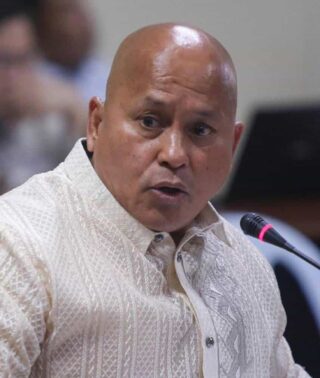Dismissed Cotabato Vice Gov. Gregorio Ipong has asked the Sandiganbayan to junk the charge against him over P9.6 million in pork barrel funds when he was congressman in 2007.
Ipong, who was sacked as vice governor last October, asked the court to determine whether the Ombudsman really established the elements of graft and malversation in the charges against him.
State prosecutors accused Ipong of disregarding appropriation and procurement laws when he tapped Aaron Foundation Philippines Inc. (Afpi) to implement his livelihood projects.
Prosecutors claimed Ipong conspired with the state-run Technology and Livelihood Resource Center to process his Priority Development Assistance Fund for projects that turned out to be nonexistent.
Ipong, however, claimed he was not responsible for “accrediting” Afpi as he merely “recommended” the foundation and he had no hand in the project’s implementation.
“TLRC was clearly not duty-bound to accept his selection/endorsement,” the pleading read.
“There is no need to exert any influence on the part of accused Ipong since the implementation and monitoring of my project will be the responsibility, primarily of TLRC, and Afpi without intervention from petitioner after he has identified the project and conduit NGO,” it said.
No control of his funds
Ipong said his endorsement of Afpi did not constitute “criminal inducement” for the misuse of the funds and did not “immediately make him liable as a conspirator” in the alleged scheme.
Ipong argued he cannot be faulted for choosing the NGO without public bidding because that requirement was not yet in force from March to April 2007.
The Commission on Audit issued its Circular No. 2007-001 six months later on Oct. 25, 2007.
Also, the requirement of prior authorization through an appropriations law before an NGO is contracted did not become a requirement until June 29, 2007, he said.
Ipong claimed he was denied due process because the Ombudsman was, in effect, “judging” the merits of a case filed by one of her Field Investigation Offices.
“The judge (Ombudsman) decided on the basis of the criminal complaint filed by one of its own offices. It is inconceivable that the judge … would decide otherwise when the complainant is its own office. Partiality is manifest,” he said.


